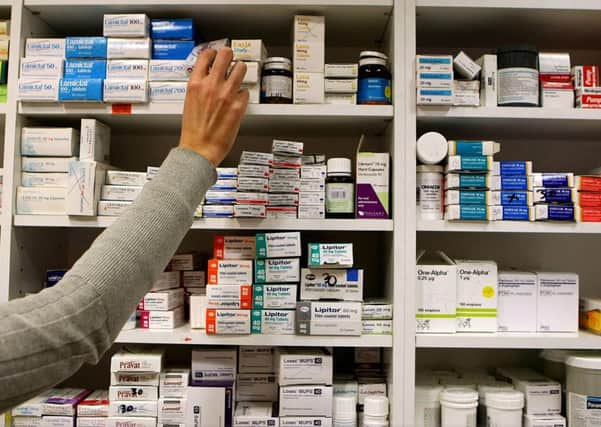'˜Patients with long term conditions cutting down on prescriptions as costs soar'


A poll of 4,200 people with long-term conditions who pay for medicines also found that 30% sometimes skip or reduce their recommended doses.
Of these, 43% cite the cost of their prescription as a reason for doing so, and 59% say skipping doses has had a negative impact on their health.
Advertisement
Hide AdAdvertisement
Hide AdSome 34% of those who have missed or reduced their dose have required extra medical treatment (such as GP or hospital appointments) as a result.
Only people living in England have to pay for prescriptions. They are free in Scotland, Wales and Northern Ireland.
The current cost of a prescription is £8.60 per item.
Prescription pre-payment certificates are available, at a cost of £29.10 for three months or £104 for 12 months.
The new poll was carried out for the Prescription Charges Coalition of more than 40 health charities, which campaigns to abolish prescription charges for those with long-term conditions.
Advertisement
Hide AdAdvertisement
Hide AdIt suggests pre-payment certificates are under-publicised, with 40% of patients who knew about them only learning about them more than a year after diagnosis.
The poll also found that 88% of people require on average two or more prescription items per month.
Laura Cockram, head of policy and campaigning at Parkinson’s UK, which co-chairs the Prescription Charges Coalition, said: “We’ve heard distressing and alarming experiences from people who are facing impossible choices over whether they should eat, heat their home or pay for essential medications to treat life-threatening conditions.
“It’s a travesty that prescription charges are preventing people from getting the treatment they need. This situation is dangerous and goes against the very principle of our NHS.
Advertisement
Hide AdAdvertisement
Hide Ad“We also believe the charges are draining vital resources and costing the NHS more in the long term, due to people’s need to access GP and hospital care when they can’t afford their medication.”
Figures from the coalition suggest that the NHS and wider economy costs of people not being able to afford their medication are likely to be far greater than the estimated £360 million to £430 million that free prescriptions for working-age people with long-term conditions would cost.
Zoe Oakley, 37, from Poole, Dorset, has high blood pressure due to inherited polycystic kidney disease.
She said: “I’ve ended up in hospital twice because I wasn’t able to afford the blood pressure medication prescribed to handle my condition.
Advertisement
Hide AdAdvertisement
Hide Ad“The first time, I woke up with a horrible headache and my blood pressure spiked to the point that I needed to get an ambulance to hospital, where I had a lumbar puncture and an MRI scan to make sure there was no bleeding in my brain.
“You cannot tell me that that was less expensive for the NHS than covering the cost of my prescription.”